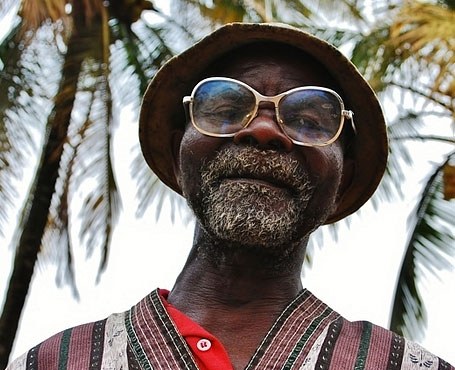 Contribuon to MMI Annual Report 2013
Contribuon to MMI Annual Report 2013
The Humanitarian Aid Foundation Redemptoris Missio was designed as medical facility for polish missionaries who work in the farest corners of the world for the most needy people. From the beginning we shared the vision of contributing to health for all, but not through policy making and advocacy but direct action. Last year was exceptional because of many successful projects. Our doctors, nurses and midwives worked in Cameroon, Ethiopia, Namibia, Jamaica, Republic of South Africa and India.
“Hocus-Pocus-EyeGlasses” was the most important Redemptoris Missio initiative in 2013. In response to requests from doctors and missionaries who work in Jamaica, we started to collect used prescription glasses. During few months we collected several thousand of glasses from donors who brought them to the headquarters of the Foundation in Poznań. Then our volunteers evaluated the power of lenses with the frontofocometer. Ophthalmologists from Poznań University of Medical Sciences prepared guidelines for missionaries on how to choose the strength of lenses in tropical conditions. The problem of refractive defects in people who live in developing countries was heavily accented in one of the last issues of the Dolentium Hominum journal. About 500 millions of people are affected by refractive problems, and 90% of uncorrected defective eyesight affecting people in developing countries. One of the conclusions was that to carry out “eyeglasses recycling” can be difficult. However, our observations show that a properly collected, marked and prepared glasses can greatly help combat the refractive defects of the poorest people in the world. Why “Hocus-Pocus-EyeGlasses”? Because for many people in developing world, a significant improvement in vision only through the assumption of a piece of glass on the nose is just like a magic!
We still continue the project “Dentist for Africa” which is co-founded by Polish Ministry of Foreign Affairs. Thanks to this close collaboration Redemptoris Missio can participate in competitions for development aid projects and is able to send medical students from Poznań University of Medical Sciences as interns to tropical countries.
The volunteer center of the Foundation still performs the arduous work of preparing packages of drugs and dressings materials for shipment. Last yer we sent more than 1,700 parcels, some of them also containing warm clothing and school supplies for poor people in Afghanistan and Kosovo. Shipping these parcels was made possible thanks to the cooperation of Polish military contingents based in those countries.
Moreover, we published 3 issues of Medicus Mundi Polonia Magazine, which in large part was focused on our new field of activity – the global and national problem of health workers shortages due to health workers migration – thanks to our participation in the European Health workers for all and all for health workers project. Last year the Foundation gained extensive knowledge and experience about the scale of migration, pull and push factors – and many useful insights about conducting a project co-financed by European Union. The most important finding from this activity was that in Poland there is still no proper space for discussion about health workforce and planning and no shared broad horizontal vision of how to improve the national health system, also by regulating the migration problem. And the second conclusion: still we have a lot to do!
Furthermore, we like to highlight trainings provided by doctors associated with the Foundation, from the Department and Clinic of Tropical and Parasitic Diseases, Poznań University of Medical Sciences. These courses for missionary candidates place three times per year in the Center of Missionary Formation in Warszawa. We believe that the courses increase awareness of future missionaries to help and enhance their safety during their stay in the tropics. Also it helps in identifying the medical needs of the society they serve, and thus allow to look for effective solutions!
The Foundation faces many daily difficulties. However, thanks to enormous contributions of selfless people, we keep up with our objectives and achieve them in a very satisfactory manner! Awareness that our work contributes at least a bit to improve the health of people in the poorest countries of the world is the greatest satisfaction!
Contribution to the Annual Report 2013 of the MMI Network
More information: www.medicus.ump.edu.pl
